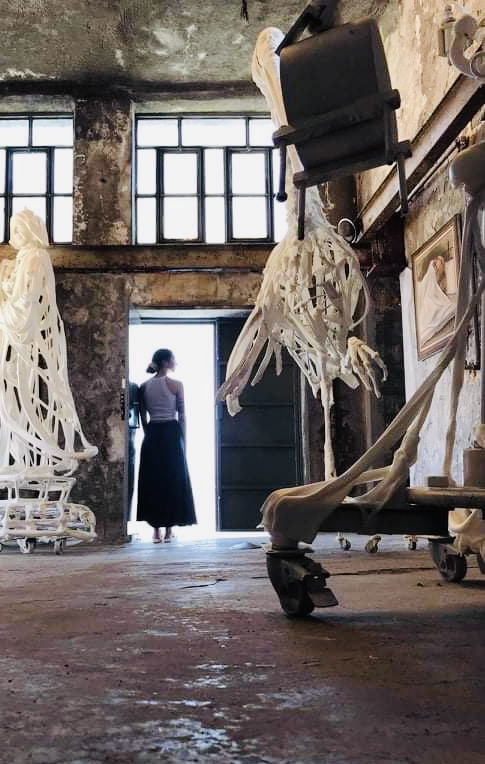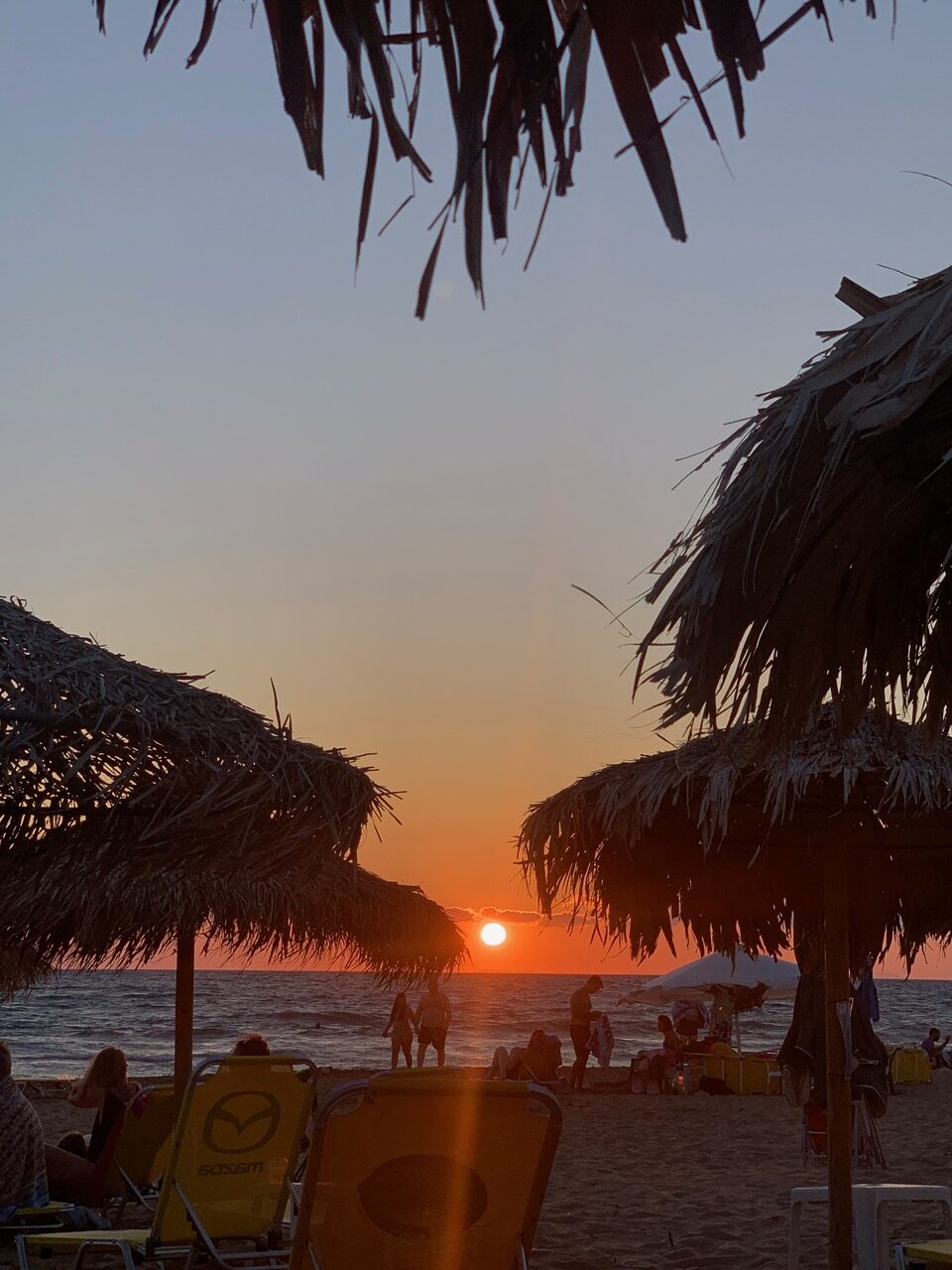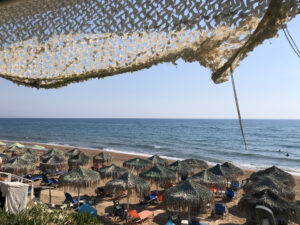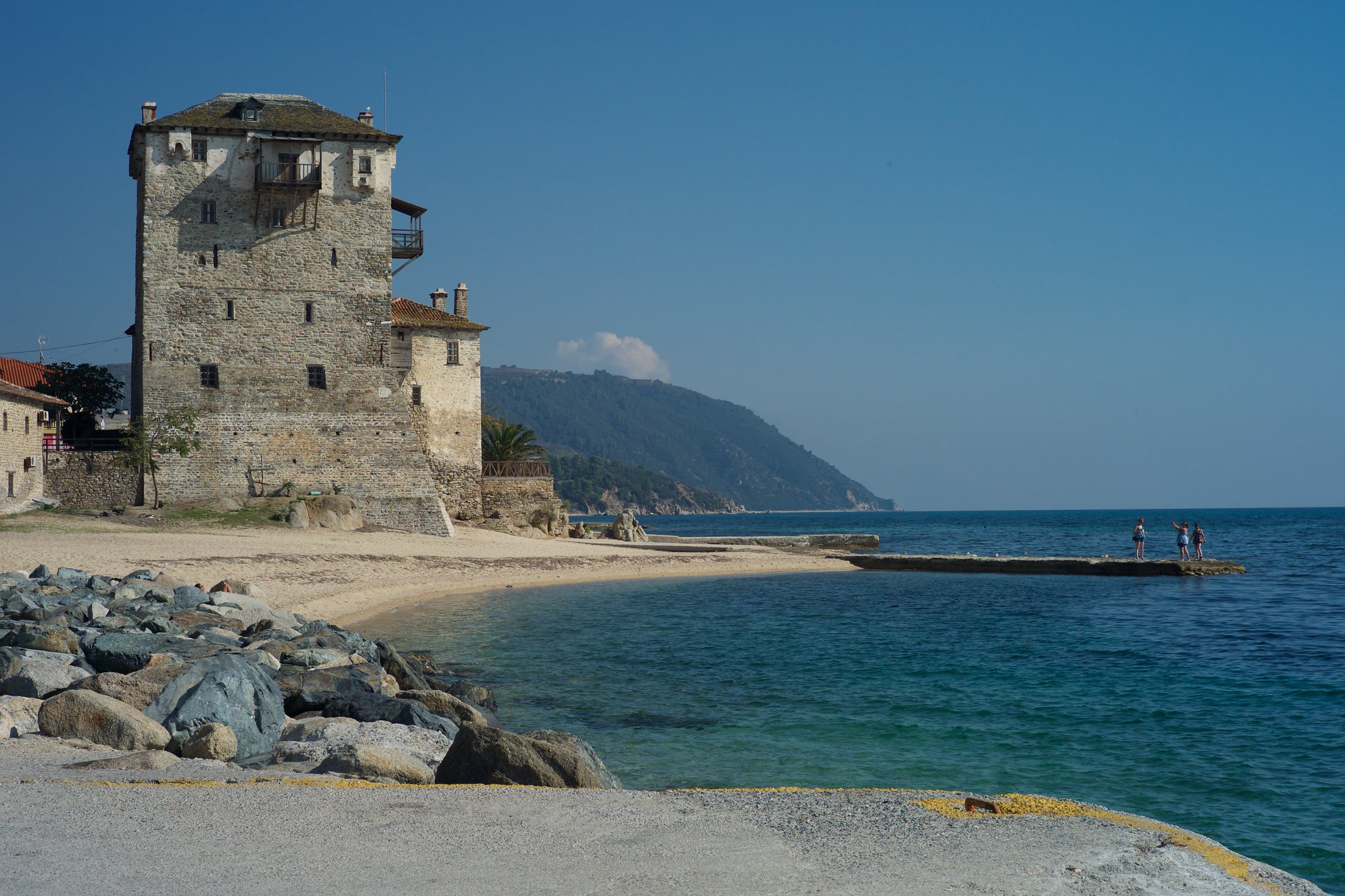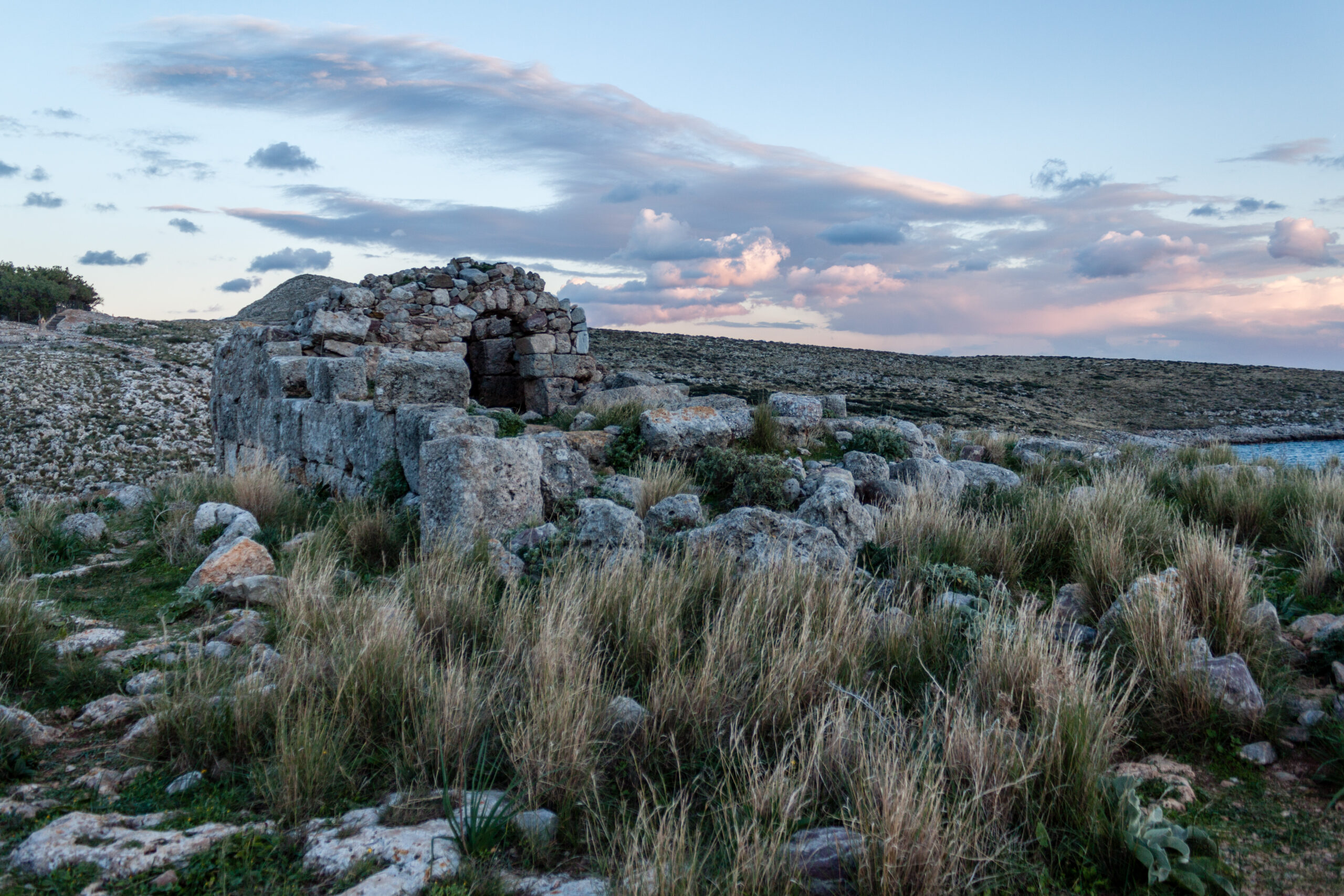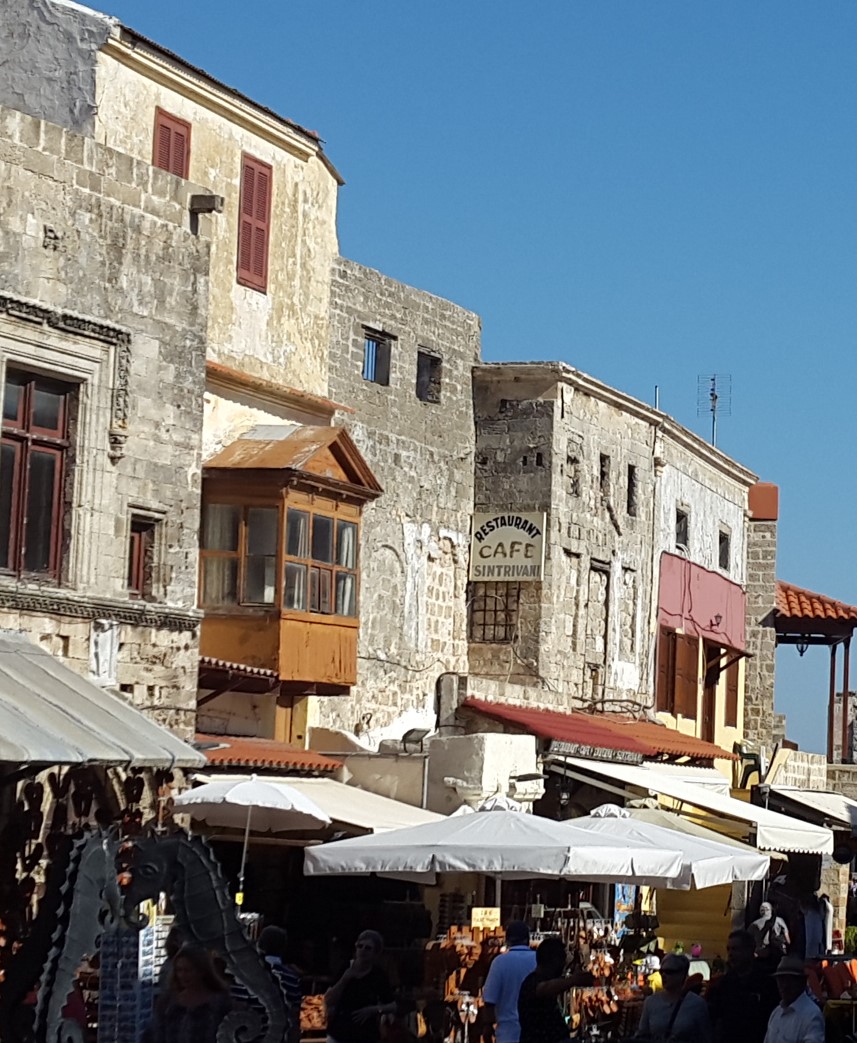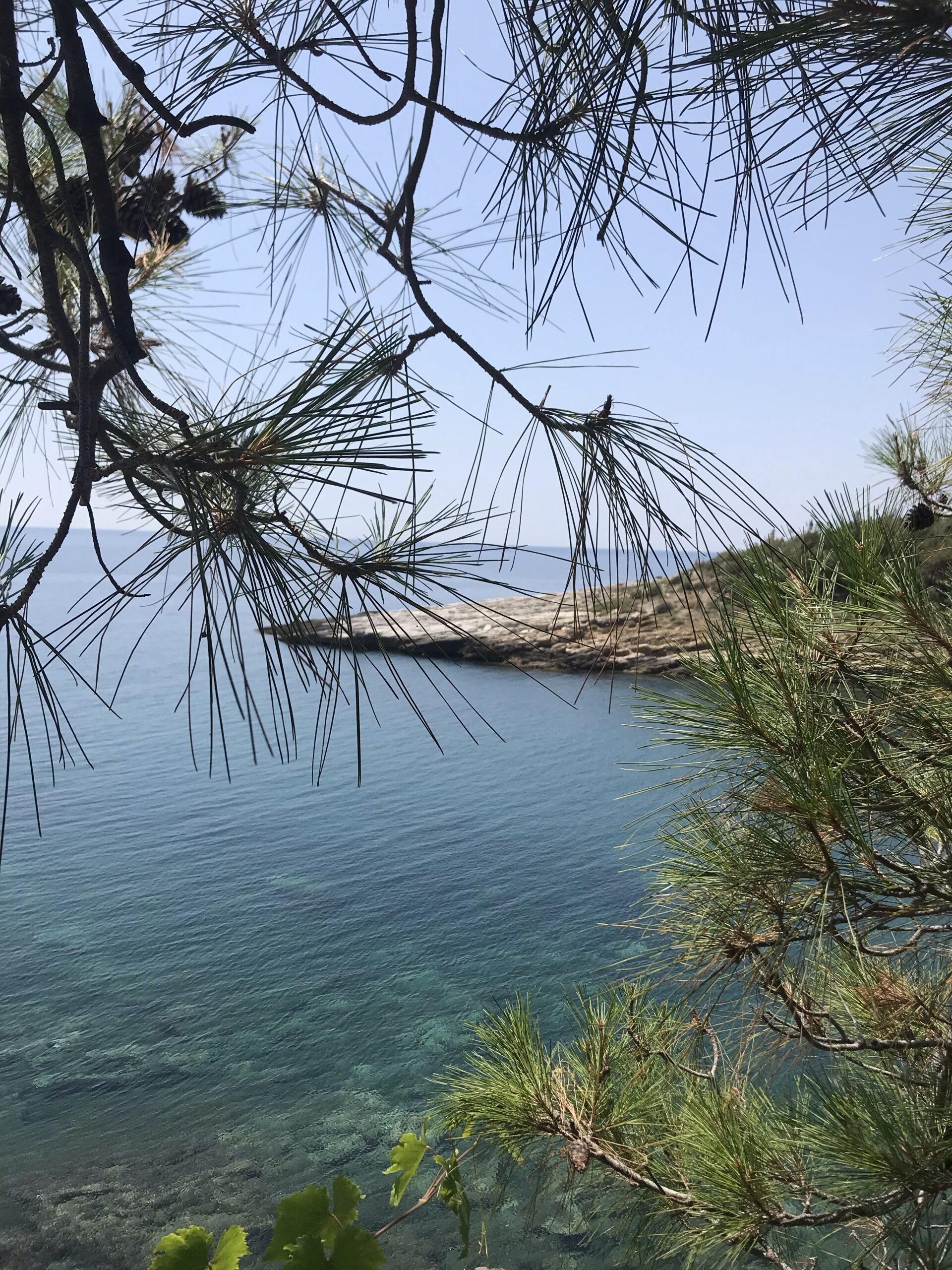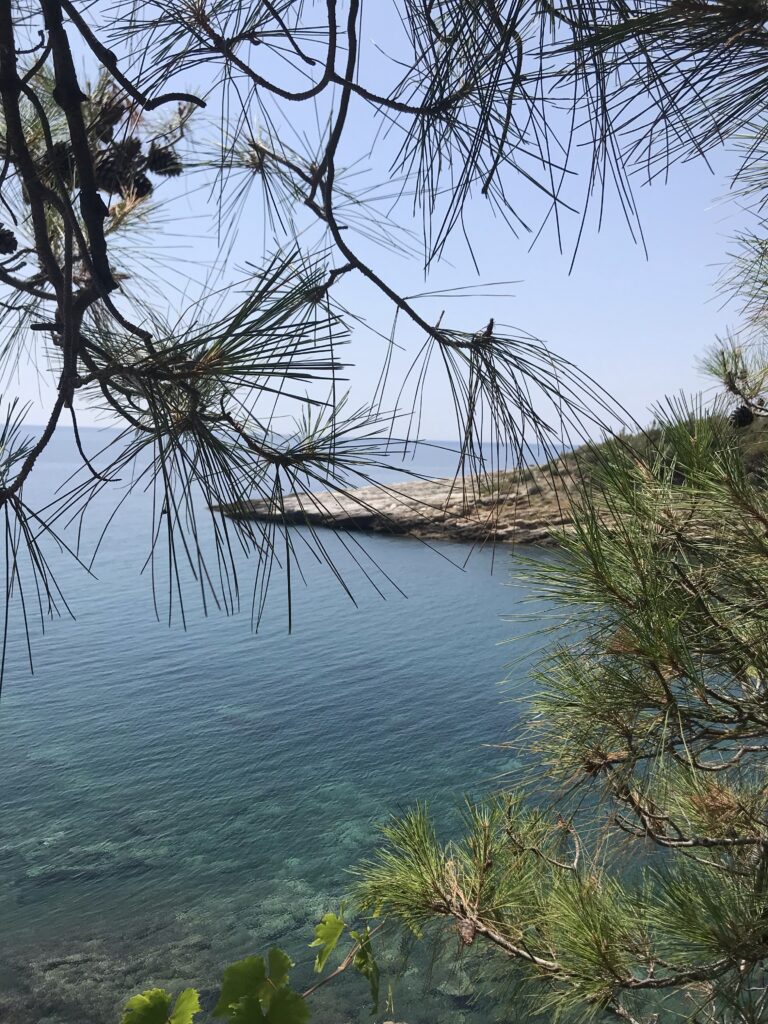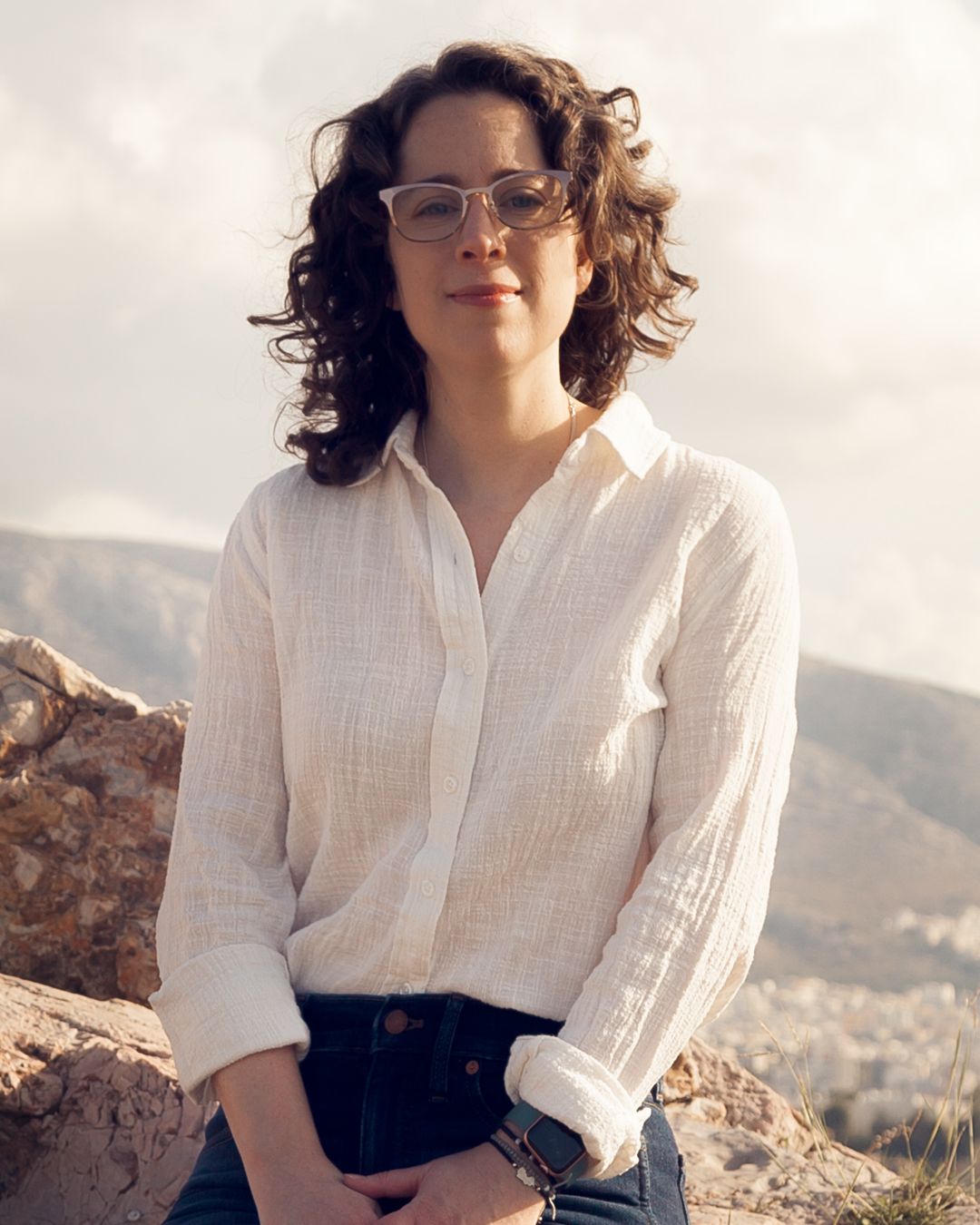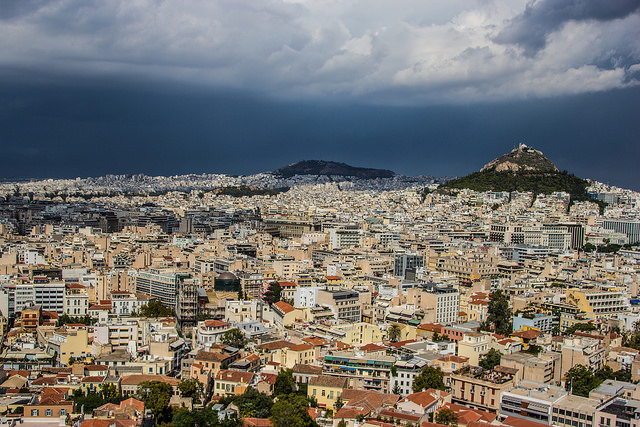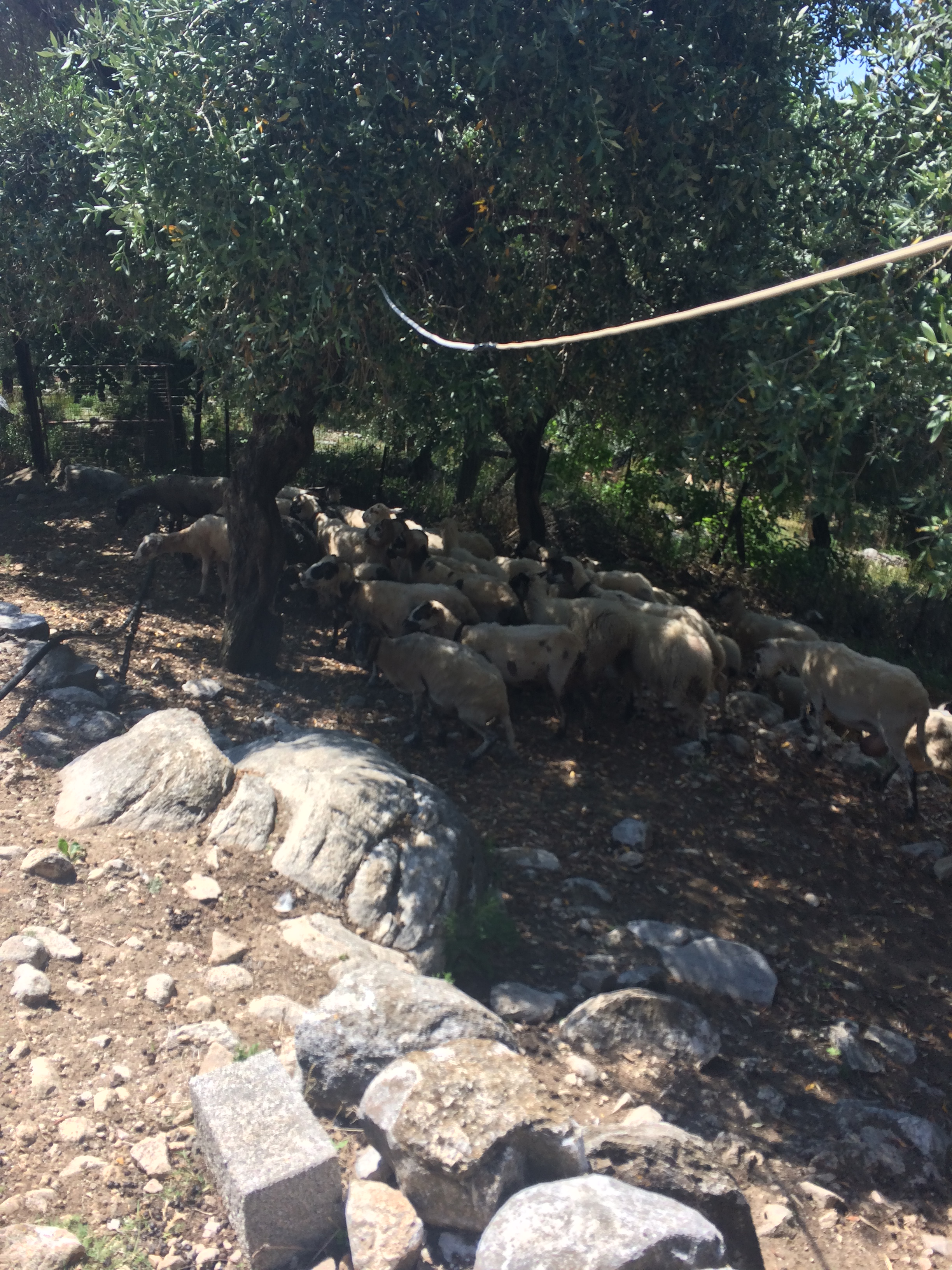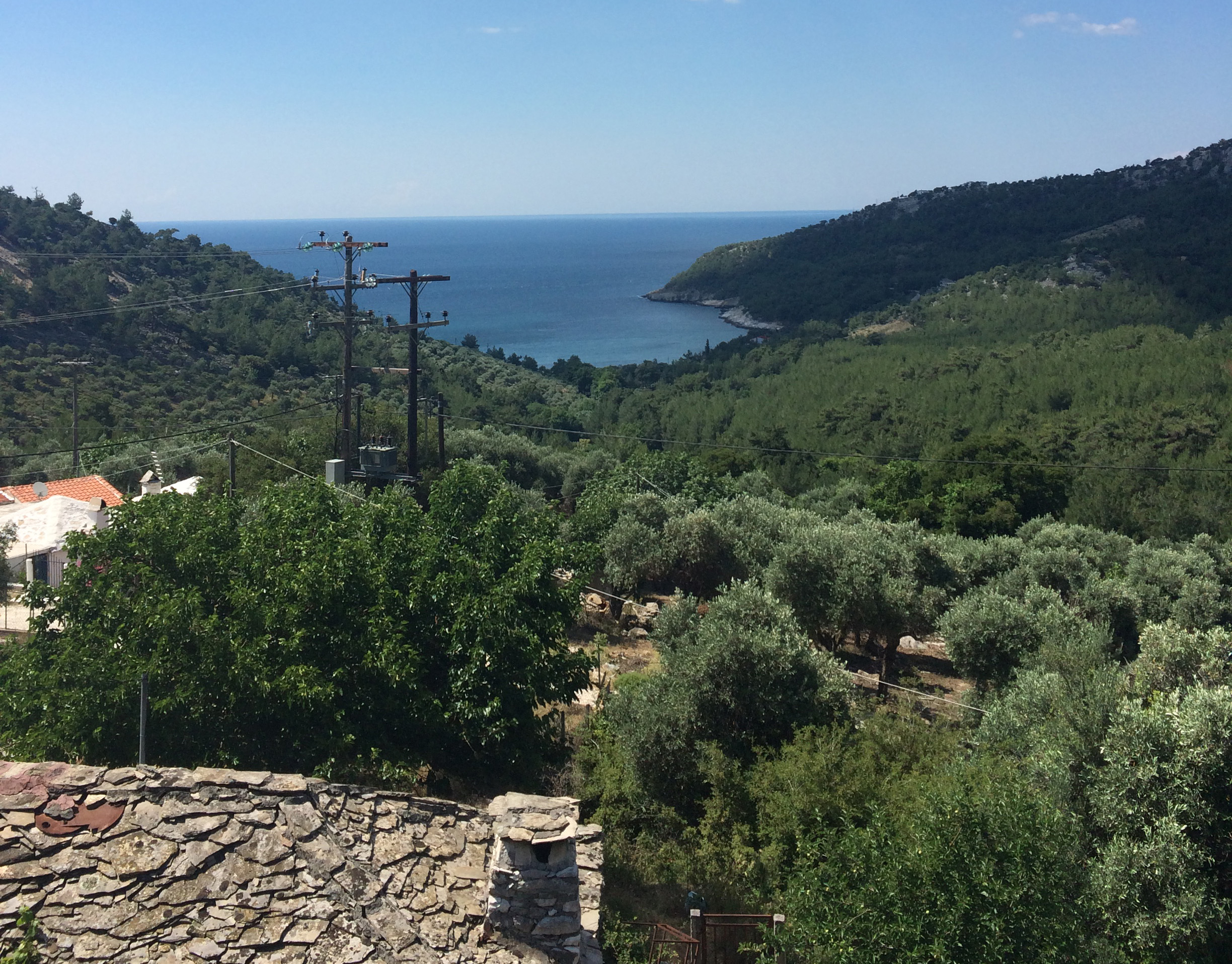
Hydra, Greece
There are no streetlights between the old slaughterhouse and the edge of town. The road that links them feels longer than its few hundred barren meters, proceeding above a rocky slope that ends in channel water—the former landing place of blood and entrails, arriving by chute while dogfish gathered. Six nights per week, a young woman makes her way along this route, tiny phone-light in hand, walking toward the main village on the Greek island of Hydra. Her name is Marina. I’ve known her since she was a child.
